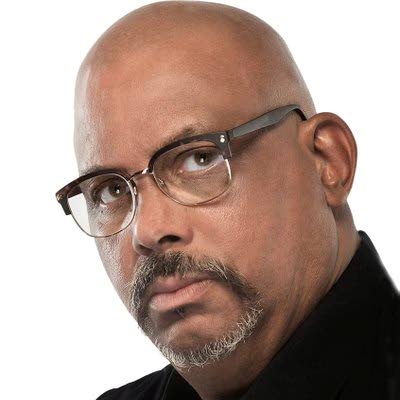Ritual, tradition and events

BitDepth#1447
ON THE track leading to the Savannah stage this year a reimagining of the Carnival Village was built and named after John Cupid. It's safe to say that almost nobody had an idea who he was and even fewer had met him.
Early in my career as a photographer, I'd often find myself working with Cupid on one cultural project or another, most of them an impenetrable mix of the eccentric and whimsical.
Rituals are normally clearly articulated practices based in faith or worship that reinforce a particular worldview. Traditions are practices that are passed on from generation to generation. Events are gatherings or incidents that command the attention of groups of people.
Carnival, restaged every year and culminating in the two days preceding Ash Wednesday, has always been a messy mix of all three, with a heady dose of a fiercely individualistic culture mixed in.
Trinidad and Tobago hosts an abundance of culturally specific festivals and a long tradition of assimilating and adapting them to our particular tastes, so it shouldn't be surprising that Carnival is subject to continuous adaptation and evolution.
When I was a child, Carnival was still very much a "road made to walk" event. Bands were sometimes small and local, parading through a small sector of the city centre, though free to jump up wherever the whimsy took them.
The Grand Stand stage was the Trinidad Guardian's solution to the problem of a scattered festival, by attracting bands with prizes for appearing there.
Other parts of the city centre, keen to have both bands and their audience in their spaces, followed suit and the modern Carnival parade route was born.
The formalisation of this arrangement was the work of the State, working through the Carnival Development Committee, to create rules and structure in an intricate prize-giving process, centralising control of what was, until then, a spontaneous, grassroots celebration that coalesced around its creators.
Popular calypsonians gathered their peers into successful calypso tents.
Steelbands, then fiercely territorial, had their energies harnessed to the bridle of formal competition, music encouraged to become the weapon of choice.
The State's involvement in the engine room of the festival and its insistence on its idea of order increased slowly and incrementally over decades.
Stakeholder organisations, created to represent sectors to the State, were co-opted into the idea of a Carnival that was largely decided on behind closed doors at the CDC and, later, the NCC.
This created a festering miasma of deliberate kleptocracy and unintentional consequences.
Not all traditions are worth carrying on. For decades we set aside the fruits of our calypsonians' labours promptly at midnight on Carnival Tuesday, consigning them to an icebox from which many would never thaw.
What Carnival needs is a serious rethinking of its entrenched competition economy and evaluating a move to the structured, creator-friendly framework used by the best Arts Council programmes.
If the millions spent on Panorama, for instance, were invested in year-long programmes in panyards that emphasised accountability for sensible outcomes, like instrument training, sight reading and community outreach, it could change the direction of the steelband movement. The successful bands in such programmes could then play for pride of place from a position of strength.
But if the NCC can't submit audited accounts for two decades, how would it impose the kind of measured, year-long monitoring of government spending on the festival necessary for real community development?
We may lament the loss of so many seminal creators of individual Carnival art forms, but I watched the last of original minstrels, bats and midnight robbers fight for a few minutes on the Grand Stand stage, only to be ignored by the Grand Stand audience before being drowned out by the DJs and roaring truck motors of big-band presentations.
If the Savannah stage is no longer a hallowed ground in modern Carnival with diminishing audiences, it's because we soiled it repeatedly with arrogance and ignorance led by the CDC and NCC.
Anyone who demonstrates the slightest bit of independent, divergent or entrepreneurial thinking in their approach to the festival is demonised.
From Kurt Allen's Barrack Yard to Dean Ackin's Tribe, stepping off Carnival's prescribed paths invites contempt and rejection by the festival's officials.
Where is the courage to sensibly fund and support those aspects of Carnival that are genuine ritual and not mere facsimile?
Where is the wisdom to accept new traditions that supplant the old?
Where is the common sense to separate events from culture and to understand that hosting the one doesn't create the other?
Carnival is struggling to change, but the fetters of the State bind it to an uncomfortable harness.
Mark Lyndersay is the editor of technewstt.com. An expanded version of this column can be found there


Comments
"Ritual, tradition and events"